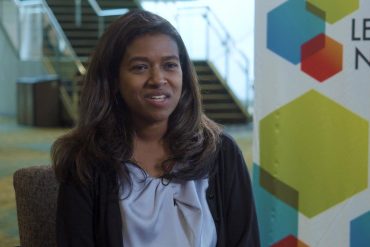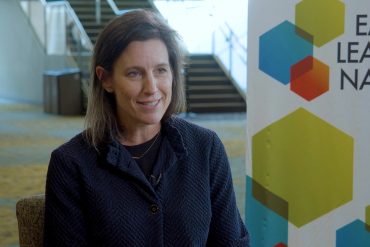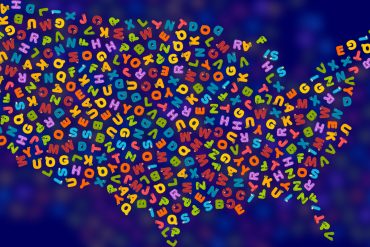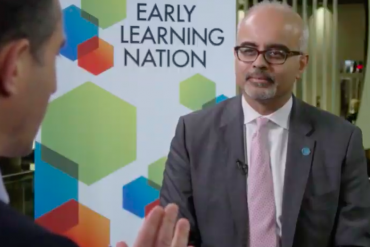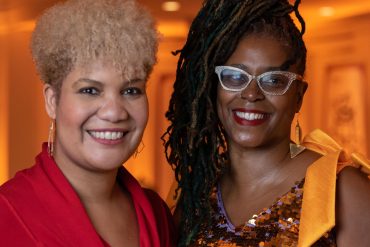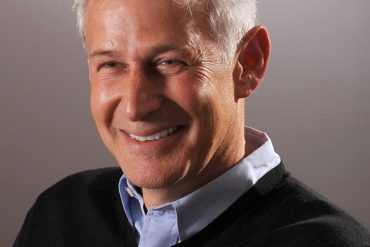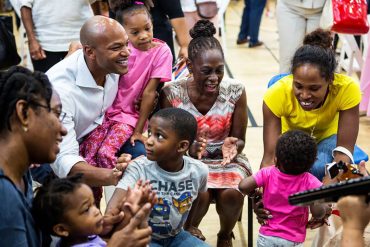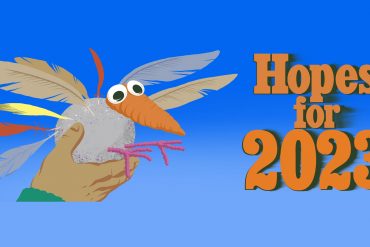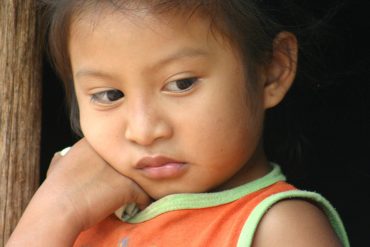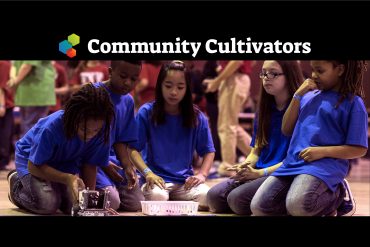When University of Maryland Associate Professor Geetha Ramani and her colleagues visit early learning classrooms, they’re known as the “game people.” Ramani’s research shows not only the importance of teaching math skills, but also the effectiveness of what might seem like an obvious tactic: Make it fun.
It’s an ongoing global crisis: More than half of all refugee children – some 62 million – have no access to any form of education. From establishing schools in refugee camps to bringing Sesame Street to the Middle East, Sarah Smith, Sr. Director of Education at the International Rescue Committee, explains how the IRC addresses this humanitarian emergency every day. Filmed for Early Learning Nation’s Mobile Studio at the Society for Research in Child Development’s biennial meeting in Baltimore, MD, on March 22, 2019. #SRCD19
In January of 2020, The Hunt Institute—an education policy non-profit based in Durham, NC—released updates to its State Early Childhood...
With 95 percent of all children living in “the majority world in developing countries” – but with only 5 percent of the early learning research coming from these locations – Aleem Walji, CEO of Aga Khan Foundation USA, is focused on bringing knowledge on what it takes to develop a child’s brain to parents, policymakers, teachers, doctors, nurses and front-line caregivers around the world.
In February, J.P. Morgan Chase & Co. awarded a $5 million Advancing Cities prize to the NOLA C.A.R.E.S. coalition (New...
5 Takeaways from Jack Shonkoff’s EdRedesign Keynote
Welcome to Our New Column Covering Live Events
On May 19, Dr. Jack P. Shonkoff delivered the Education Redesign Lab (EdRedesign) spring keynote address via YouTube. Among his many distinctions, Dr. Shonkoff—Director of Harvard’s Center on the Developing Child and Professor at Harvard T.H. Chan School of Public Health, Harvard Medical School, and Harvard Graduate School of Education—was awarded the 2019 LEGO Prize for revolutionizing the field of early child development. Here are our notes from his remarks.
Robin Hood FUELs the Future for Children
Shares Brain Science, Strategically Partners to Create an Early Learning Metropolis
The greatest city in the world. More than 100,000 children 0-3 growing up in poverty. Two facts that are painful to reconcile.
This is a job for Robin Hood. Unafraid to challenge the seemingly intractable, the grant maker and all-around poverty fighter combines rigorous data and strategic partnerships with powerhouse fundraising.
Here’s the story behind the $50 million, five-year Fund for Early Learning (FUEL) .
Hope, wrote Emily Dickinson, is the thing with feathers. To which we would add glitter, glue, googly eyes and the...
Praise is a funny thing. Words of acknowledgment can be the water and sunshine that help children grow into sturdy,...
The Consequences of Forced Separation
When Traumatized Children Return to Traumatized Parents
Science tells us that an outpouring of stress hormones shapes the way the brain develops. Trauma affects behavior, brain development, even the immune system. It’s devastating for all, but for newborns and youngest children, the impact can be profound.
Make. Learning. Relevant.
Dean Kamen’s Vision for Building Community
Imagine a world where baseball is a subject taught in school. Just one thing is missing from this imaginary curriculum: the students never actually get to play the game.
In September, they open their textbooks and read about the origins and rules of baseball. After winter break they take tests on pitching and hitting records set by the greatest players. By the spring, classes delve into the nuances of base stealing and bunting.
So what if they never swing a bat themselves or catch a line drive, right? It’s not like any of them are going to become professional ballplayers, right?
To Dean Kamen, this scenario is no more absurd than the way math and science have been taught traditionally.
First, the good news. As it turns out, the so-called summer slide might not be the threat to our nation’s...


